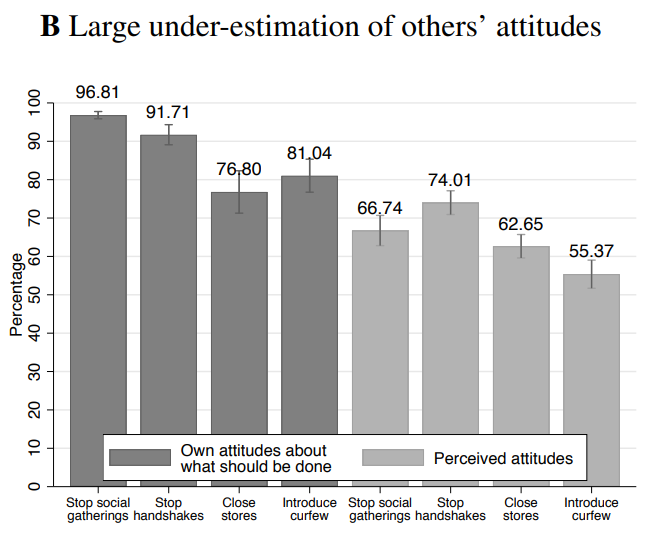Important data here from @jhaushofer & collaborators, comparing actual attitudes with (mis-)perceptions about attitudes:
Should we stop social gatherings?
97% say yes
but they think only 67% believe this.
Should we close stores?
77% say yes
but think only 63% believe this.
Should we stop social gatherings?
97% say yes
but they think only 67% believe this.
Should we close stores?
77% say yes
but think only 63% believe this.
They document a clear pattern in which a robust supermajority of the public want strict shutdown measures, but when you ask them what they think others believe, they mis-perceive that others are less likely to share these beliefs.
Full paper is here: https://psyarxiv.com/3kfmh ">https://psyarxiv.com/3kfmh&quo...
Full paper is here: https://psyarxiv.com/3kfmh ">https://psyarxiv.com/3kfmh&quo...
Here& #39;s why this might really matter:
Politicians respond to their perceptions of public opinion. If pols mis-perceive that their voters are less pro-shutdown than they actually are, then their imaginations are inventing a constituency to relax the shutdowns.
Politicians respond to their perceptions of public opinion. If pols mis-perceive that their voters are less pro-shutdown than they actually are, then their imaginations are inventing a constituency to relax the shutdowns.

 Read on Twitter
Read on Twitter


